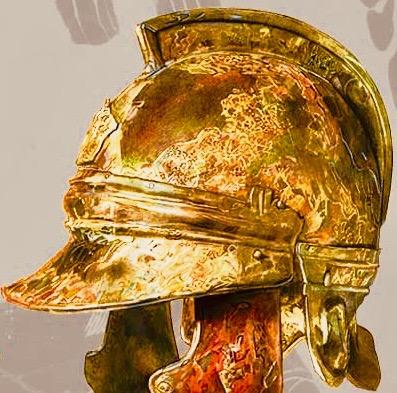Themistocles was an Athenian politician and military commander in the crucial era of the Persian invasions.
After Athens ended tyrant rule to adopt a novel form of government called democracy, Themistocles quickly ingratiated himself with the underclasses, becoming perhaps the world's first populist leader. He amassed a large Athenian navy, built a wall around the city, and conceived effective strategies in the Hellenic alliance's victories over Persian aggressors.
Themistocles grew proud, inspiring opposition at home and throughout the region. Amid accusations that he had switched from defending Greeks to collaborating with Persia, he suffered ostracism, a voting process by which Athens exiled leaders grown too powerful.
Fearing the hatred of his enemies and defeat in imminent prosecutions, Themistocles fled, eventually presenting himself to the King of Persia with promises that he would aid Persia's next attempt to conquer Hellas. The King welcomed Themistocles and his family with an Ionian governorship and a steady income. But the Athenian never fulfilled his bargain. He died in Magnesia at the age of 65.
Themistocles is thought to be the first ancient ruler to order his image stamped on coins. Depictions usually show him in a gleaming helmet.

